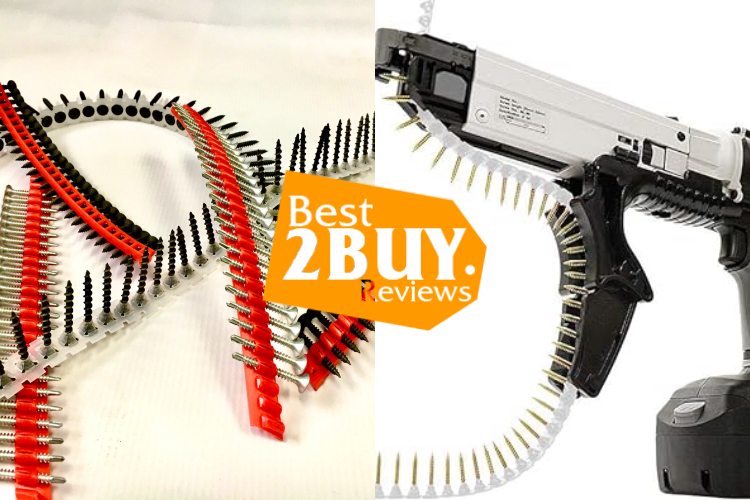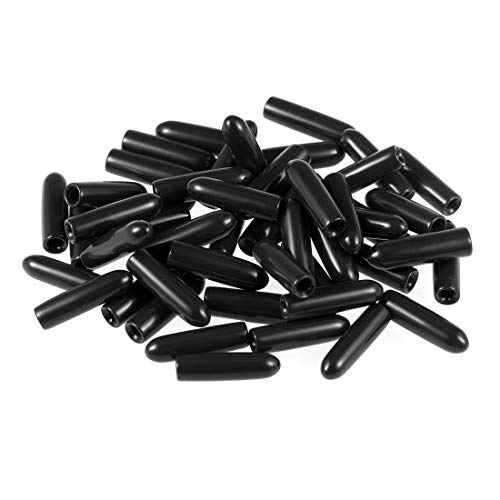Collated Screws: Enhancing Efficiency in Construction and Woodworking

- 1. Collated Screws: Enhancing Efficiency in Construction and Woodworking
- 1.1. What Are Collated Screws?
- 1.2. Benefits of Collated Screws
- 1.2.1. Time-Saving Efficiency
- 1.2.2. Consistent Quality
- 1.2.3. Reduced Fatigue
- 1.2.4. Increased Accuracy
- 1.2.5. Versatility
- 1.2.6. Cost-Effective
- 1.3. Applications of Collated Screws
- 1.3.1. Drywall Installation
- 1.3.2. Framing
- 1.3.3. Decking and Flooring
- 1.3.4. Cabinet and Furniture Assembly
- 1.3.5. General Woodworking
- 1.4. Choosing the Right Collated Screws
- 1.4.1. Material and Coating
- 1.4.2. Thread Type
- 1.4.3. Head Type
- 1.4.4. Length and Gauge
- 1.4.5. Collation Type
- 1.4.6. Compatibility with Screw Gun
Efficiency and precision play crucial roles in the success of construction or assembly projects. This is where collated screws become instrumental, proving to be a game-changer, especially for professionals operating in high-speed work settings. But what exactly are collated screws? Let’s delve into these details.
What Are Collated Screws?
Collated screws refer to screws affixed to a plastic strip, facilitating convenient loading and firing with an auto-feed screw gun. This feature proves time and labor-saving, particularly for extensive projects. These screws come in diverse sizes and head configurations, finding application in various fields such as construction, roofing, and drywall installation.
Benefits of Collated Screws
Time-Saving Efficiency
One of the primary advantages of collated screws is the time-saving efficiency they offer. Traditional methods of screwing involve manually picking up individual screws, aligning them with the target, and then driving them in. Collated screws streamline this process by eliminating the need for constant reloading, reducing downtime, and significantly increasing the speed of the job.
Consistent Quality
Collated screws are manufactured with precision, ensuring uniform size and quality. This consistency is crucial in construction and woodworking projects, where the integrity of the structure relies on the uniformity of fasteners. The elimination of irregularities in size and shape enhances the overall reliability of the fastening process.
Reduced Fatigue
Construction and woodworking professionals often face physical strain from repetitive tasks. Collated screws contribute to reducing worker fatigue by minimizing the effort required to load and drive screws. This not only enhances the overall comfort of the worker but also increases productivity over extended periods.
Increased Accuracy
The design of collated screws and their compatible tools ensures accurate and precise placement. This is especially critical in applications where alignment is crucial, such as when attaching drywall or securing materials with tight tolerances. The improved accuracy results in a higher-quality finished product.
Versatility
Collated screws are available in various sizes and types, making them suitable for a wide range of applications. Whether you're working on a framing project, installing subflooring, or assembling furniture, there are collated screws designed to meet specific requirements. This versatility makes them a valuable tool in the toolkit of construction and woodworking professionals.
Cost-Effective
While collated screws may initially seem like a more significant investment compared to traditional screws, their long-term cost-effectiveness becomes apparent through increased efficiency and reduced labor costs. The time saved on projects translates to more work completed in a shorter timeframe, ultimately benefiting both contractors and clients.
Applications of Collated Screws
Collated screws find applications in various construction and woodworking projects:
Drywall Installation
Collated screws have revolutionized the process of drywall installation. Traditionally, drywall was attached using nails, which often resulted in uneven surfaces and a time-consuming installation process. Collated screws, however, have changed the game. The speed at which they can be driven into studs, combined with their precision, makes them an ideal choice for securing drywall sheets. This application significantly reduces installation time while ensuring a more reliable and stable end result.
Framing
Structural integrity is of utmost importance in framing applications, and collated screws excel in delivering both speed and security. Whether used in residential or commercial construction, collated screws offer a quick and efficient method for fastening framing members together. The ability to drive screws rapidly contributes to the streamlined assembly of frames for buildings and other structures, making them an invaluable tool in the construction industry.
Decking and Flooring
In decking and flooring projects, collated screws prove to be a fast and reliable solution. The consistent quality of these screws ensures that each one contributes to the overall stability and longevity of the structure. Whether securing boards for a deck or laying down flooring materials, collated screws provide a level of efficiency and precision that is crucial in achieving a high-quality and durable end product.
Cabinet and Furniture Assembly
Collated screws play a vital role in the assembly of cabinets and furniture, where precision and speed are paramount. The ability to drive screws accurately is crucial in ensuring the overall aesthetic and functional quality of the finished product. Whether used in the assembly of kitchen cabinets or intricate pieces of furniture, collated screws streamline the process, reducing assembly time without compromising on the integrity of the final product.
General Woodworking
Beyond specific applications, collated screws have found a home in general woodworking. Woodworkers appreciate the versatility and convenience that collated screws offer in various projects, from crafting smaller items like wooden boxes to larger pieces of custom furniture. The ability to quickly and precisely join wood together enhances the overall efficiency of the woodworking process.
Choosing the Right Collated Screws
Selecting the appropriate collated screws is contingent upon the particular needs of your project. When deciding on the suitable collated screws for your task, take the following factors into account:
Material and Coating
The material and coating of collated screws play a vital role in their performance and durability. Common materials include steel and stainless steel. Steel screws are suitable for general applications, while stainless steel is preferred for outdoor or corrosive environments due to its resistance to rust and corrosion. Additionally, screws may be coated with various materials such as zinc, phosphate, or ceramic for enhanced protection against the elements.
Thread Type
The thread type of collated screws determines their holding power and suitability for different materials. There are three main types of threads: coarse, fine, and twin. Coarse threads are ideal for softer materials like wood, while fine threads provide better grip in harder materials like metal. Twin threads offer a balance and are versatile for various applications. Consider the type of material you are working with when selecting the appropriate thread type.
Head Type
Collated screws come with different head types, each serving a specific purpose. Common head types include flat head, bugle head, and pan head. Flat heads are suitable for flush finishes, bugle heads are designed for drywall applications, and pan heads provide a larger surface area for improved clamping. Choose the head type that best suits the requirements of your project.
Length and Gauge
The length and gauge of collated screws should match the thickness of the materials you are fastening. Using screws that are too short may not provide sufficient grip, while screws that are too long can compromise the integrity of the material. Additionally, the gauge of the screw refers to its thickness, and choosing the right gauge is crucial for ensuring structural integrity.
Collation Type
Collated screws are available in different collation types, such as strip collation and coil collation. Strip collation involves screws arranged in a straight line, while coil collation involves screws wound in a coil. The choice between the two depends on the type of tool you are using, as different screw guns and collators are designed for specific collation types.
Compatibility with Screw Gun
Before making a purchase, ensure that the collated screws are compatible with your screw gun or collated screwdriver. Different manufacturers produce screws with unique specifications, and using the wrong type of screws may lead to jamming or inefficiency. Check the user manual of your tool for recommended screw types and sizes.
In conclusion, collated screws have become a staple in the construction and woodworking industries, providing a range of benefits that contribute to increased efficiency, accuracy, and overall project quality. As technology continues to advance, collated screws are likely to evolve further, offering even more specialized solutions for professionals in these fields.











